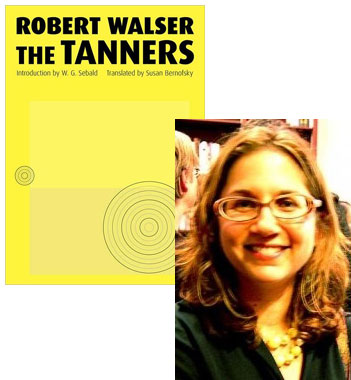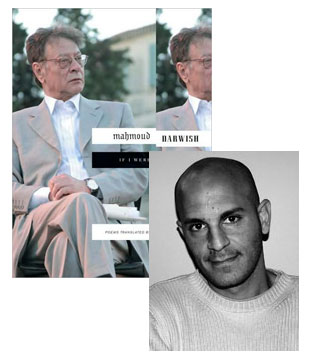Coaxing German Literature into English with Susan Bernofsky

A few months ago, New Directions published a new translation of the early 20th-century German writer Robert Walser’s The Tanners by Susan Bernofsky; a mutual friend, knowing of my interest in showcasing literature in translation, suggested we should be in touch. I’m looking forward to reading The Tanners, and then late next spring New Directions will also be publishing Bernofsky’s translation of the story collection Microscripts; New York Review of Books Classics has also commissioned her to translate a separate batch of Walser stories. And Walser isn’t the only German-language author Bernofsky has translated into English. In this essay, she describes how “something that happened on the side” while she was working on her own writing has come to take a central role in her professional career.
Becoming a translator is the sort of thing that can happen to a writer who falls desperately in love with a foreign language and all the new possibilities it offers for saying things in different ways. There are so many gaps between languages, so many things that can be so deftly expressed in one language while they are almost impossible to explain in another, and the more conscious you become of these discrepancies, the more temping it becomes to start triangulating back into English, looking for ways to coax your own language into saying all these new things.
My first experiments with translation began when I was just starting out as a writer. I tried my hand at translating not because I had a grand plan for revolutionizing the English language, but because I was fascinated by what the foreign writers I was reading in German were doing in their texts as they played with the possibilities their language gave them. It’s possible to construct sentences in German that keep the reader waiting for the verb until the very end. What about in English? It’s possible in German to insert entire squadrons of complex adjectival phrases between the article “the” and the noun it belongs to. What can we do to make up for English’s inability to do so? I found that I enjoyed gnawing on problems like this the way some people enjoy crossword puzzles.
I never set out to become a professional translator. Translating was just something that happened on the side while I was preparing myself to be a writer, scholar and teacher, for the simple reason that I never stopped working at it. It was fun. People said they liked the stories I translated for them, so I felt encouraged to do more. It was a good way to act on the impulse I often had to show other people things I liked. For example, I became Yoko Tawada‘s translator just because I happened to stumble on a tiny one-page story by her in the Austrian literary magazine manuskripte that I liked so much I wanted people I knew to see it. After translating the story, I wrote to Tawada care of the magazine asking for permission to publish it, and by return mail she sent me another little story with a note asking me to please translate that one too.
3 December 2009 | in translation |
Fady Joudah & the Late Styles of Mahmoud Darwish

Here’s the opening lines from If I Were Another, a posthumous collection of the lyric epics of Mahmoud Darwish, as translated by Fady Joudah:
…As I look behind me in this night
into the tree leaves and the leaves of life
as I stare into the water’s memory and the memory of sand
I do not see in this night
other than the end of this night
the ticking clock gnaws at my life by the second
and also shortens the life of this night
nothing of the night or of me remains to wrestle over.. or about
but the night goes back to its night
and I fall into this shadow’s pit
I invited Joudah to discuss his connection to these poems, which span fifteen years towards the end of Darwish’s life, a time during which, as Joudah explains, Darwish began to feel that he had truly come into his voice… which is true, but as Joudah reveals, that doesn’t mean that voice wasn’t capable of changing even further…
6 November 2009 | in translation |

 Our Endless and Proper Work is my new book with Belt Publishing about starting (and sticking to) a productive writing practice.
Our Endless and Proper Work is my new book with Belt Publishing about starting (and sticking to) a productive writing practice. 
